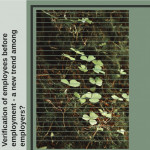Recruiting employees after the holidays are associated with a lot of myths and assumptions. In this publication, we decided to deal with them and gather some facts to prepare well for it. Recruitment has never been easy, but contrary to the weather conditions - it starts to get particularly hot… after the holidays. And if we add a "pandemic" holiday to it, we already have a recipe for a truly masterful challenge.
Fortunately, if you do not underestimate the problem and approach the employment of specialists wisely, you can achieve your goals. We hope to help you with this today! Here are some facts that you should pay attention to when recruiting IT after the summer holidays to gain a competitive advantage:
Technology companies remember about marketing
It has been known for a long time that marketing in employee recruitment plays a vital role, from good employer branding to appropriate communication and PR. IT specialists can pick from job offers, so you need to stand out with something specific. Don't save on marketing - even despite theoretically worse times.
Fewer job offers, but also less competition
Many people think - they postpone looking for a job until the post-vacation period, counting on more offers. As a result, there are fewer candidates for announcements published now, and thus the competition is smaller.
Companies are more determined
Less competition is one thing, but holidays are often associated with lower expectations of employers. Why? HR employees know that finding an employee on vacation is more difficult. Therefore, they don't invest in the recruitment process if they really don't have to. They prefer to wait. If an advertisement appears, it usually means that someone has a real need - because, for example, another employee has terminated, the employee has become pregnant, etc. If the employee's need is huge, the company is more likely to turn a blind eye to some expectations. So even if you don't meet 100%, you have a better chance of getting a job.
HR has more time
Although HR departments also take holidays, at the same time someone always (or usually) stays at work. Fewer tasks and fewer CVs make your CV read more accurately, and you have less chance that your CV will fall into a black hole.
Avoiding the post-vacation boom
December and January are the worst months to look for a job. Why? After resting after a year-long race, people on vacation often decide to change jobs at that time. From January, the competition will therefore be greater than in other months of the year. So if you want to change jobs, waiting for another month will only lower your chances.
New year = new goals
With the onset of Christmas time, the New Year follows. At this time, resolutions and goals are made for the following year. People often set themselves to find a better job, make more money, or even take on more responsibility. This makes January a good time to attract candidates looking to change or grow in the next year.


 Posted on Jan 5, 2021 by Anna
Posted on Jan 5, 2021 by Anna


